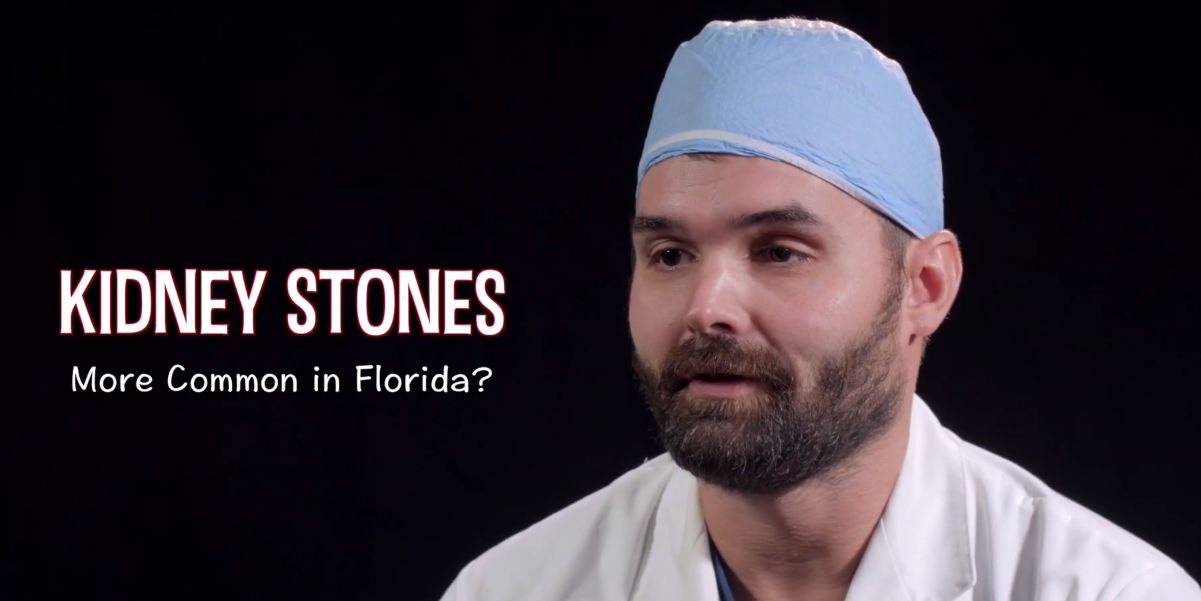KEY TAKEAWAYS:
- Dr. Evan Fynes, a urologist in Port Orange, FL, has observed a higher prevalence of kidney stones in Florida due to the hot and humid climate causing chronic dehydration.
- Conservative management, such as medications and increased fluid intake, is often the first approach to treating kidney stones.
- Surgical treatments, such as ureteroscopy with laser lithotripsy and extracorporeal shock wave lithotripsy, may be necessary when conservative management is unsuccessful.
Dr. Evan Fynes, a urologist in Port Orange, FL, has observed that kidney stones seem to be more common in Florida compared to other regions, such as Ohio. He attributes this higher prevalence to the hot and humid climate in Florida, which can lead to chronic dehydration. In this article, we will explore Dr. Fynes’ observations and the ways kidney stones can be treated.
Prevalence of Kidney Stones in Florida
According to Dr. Fynes, kidney stones are a common issue for many patients in Florida. The hot and humid weather often results in increased sweating, which can lead to dehydration. Dehydration is one of the most common causes of kidney stones, as it can cause a buildup of minerals and salts in the urine, leading to stone formation. Many individuals in Florida visit emergency rooms with symptoms such as abdominal pain, side pain, and vomiting, which can be indicative of kidney stones.
Conservative Management of Kidney Stones
Dr. Fynes notes that there are several surgical ways to treat kidney stones, but often, a conservative approach is initially attempted. Depending on the size and location of the stone, patients may be given medications and encouraged to increase their fluid intake to help pass the stone naturally. This conservative management aims to avoid invasive procedures and reduce the risk of complications.
Surgical Treatment Options for Kidney Stones
When conservative management is unsuccessful, Dr. Fynes may recommend surgical intervention to treat kidney stones. Two common surgical methods include ureteroscopy with laser lithotripsy and extracorporeal shock wave lithotripsy (ESWL). In ureteroscopy, a small scope is inserted into the ureter, and a laser is used to break up the stone into smaller pieces, which can then be passed naturally. ESWL, on the other hand, involves using shock waves from outside the body to break up the stone, allowing the fragments to be expelled through the urinary tract.
Advanced Urology Institute
Dr. Evan Fynes is a part of the Advanced Urology Institute, the largest urology practice in Florida. The institute is committed to providing the highest quality of care for their patients through the use of cutting-edge technology and evidence-based treatment approaches. By choosing the Advanced Urology Institute for your urological needs, you can trust that you are receiving the best possible care from highly skilled and experienced professionals.
TRANSCRIPTION:
So coming from Ohio you know we saw a lot of kidney stones but then coming
down here for the year I’ve been down here so far it’s been stones everywhere
everybody’s just chronically dehydrated due to the sweating and the humidity and
that’s usually the most common cause of kidney stones is dehydration.
Hello Dr. Evan Fynes . I’m a urologist with Advanced Urology Institute. You’ll see a
lot of people commonly go into the emergency room with abdominal pain and
pain on their sides and throwing up and one of the first things they they want
to check out is if you have a kidney stone or not so down here this kidney
stones run rampant. Usually there’s there’s a lot of different surgical ways
of treating a stone but a lot of times these stones depending on kind of
patients clinical outlook we give them a chance to pass the stone if it’s
depending on where it’s at the kidney or it’s close to the bladder and then the
size of the stone so a lot of times we try to do conservative management with
medication to try to pass the stone otherwise a lot of times we have to go
up and get the stone and use a laser to break it up or sometimes we use shock
weight lithotripsy blasted with shock waves from outside the body.
REFERENCES:
- “Kidney Stones: Symptoms, Diagnosis & Treatment.” https://www.urologyhealth.org/urology-a-z/k/kidney-stones.
- “Kidney Stone Treatment & Prevention – UCLA Health.” https://www.uclahealth.org/medical-services/urology/kidney-stone/kidney-stone-treatment-prevention.
- “What Surgical Options can be Used for Kidney Stone Treatment?.” 17 Mar. 2020, https://www.rghospitals.com/blog/what-surgical-options-can-be-used-for-kidney-stone-treatment.


